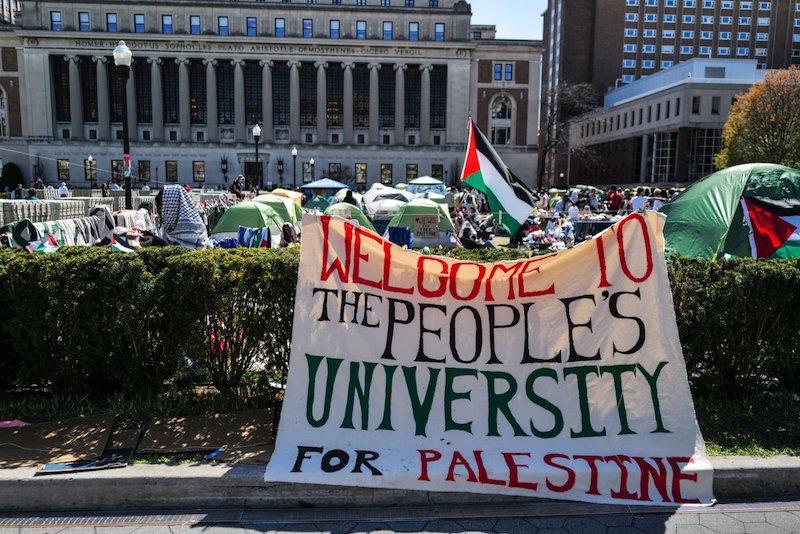This back-to-school season brings bad tidings for dissent. Here in the U.S., academic institutions continue to restrict, thwart, and punish pro-Palestinian speech from students, employees, and teachers alike.
After coming under fire for their treatment of campus protesters last term, New York University admins dropped an updated code of conduct that includes controversial anti-discrimination protections for “Zionists” and “Zionism.”
As The Intercept reports, this rhetorical move risks conflating Zionism with Judaism, by framing the former as a “code word,” or slur. In other words, though “[o]stensibly aimed at curtailing bigotry, the new language instead shuts down dissent by threatening to silence criticism of Zionism on campus.”
Uptown, at Columbia—an initial hotbed for the campus protest movement—the administration kicked off the year with an overt show of force. Feet from campus, police arrested two student marchers on the first day of school.
Such tamp-downs are not reserved for the young people, either. Professors who speak out for Palestine continue to experience career consequences. As Democracy Now reported last week, Columbia law professor Katherine Franke is looking at termination after colleagues complained about her critical stance on Israel.
In Illinois, Northwestern professor and regular Lit Hub contributor Steven Thrasher has been suspended from his post for defending a student encampment from police intimidation. Though the university filed charges against their “chair of social justice reporting” earlier this year for his presence at a protest, obstruction charges were dropped shortly after.
Thrasher told Amy Goodman that he received no “due process” from his employers, who have recently placed him under investigation. Franke was also blindsided by her university’s call.
And in an elegant New Yorker profile, Gideon Lewis-Kraus contextualized the ongoing pressures facing the left-leaning magazine Jewish Currents. Last week, Brooklyn College abruptly cancelled a long-planned festival the magazine was set to host, “with sixty-five speakers and an expected crowd of up to a thousand.”
The college denies that the cancellation was politically motivated, and cited “emergency safety measures.” But the magazine suspects political skittishness.
Undaunted, their search for a new location is ongoing.
Image via

